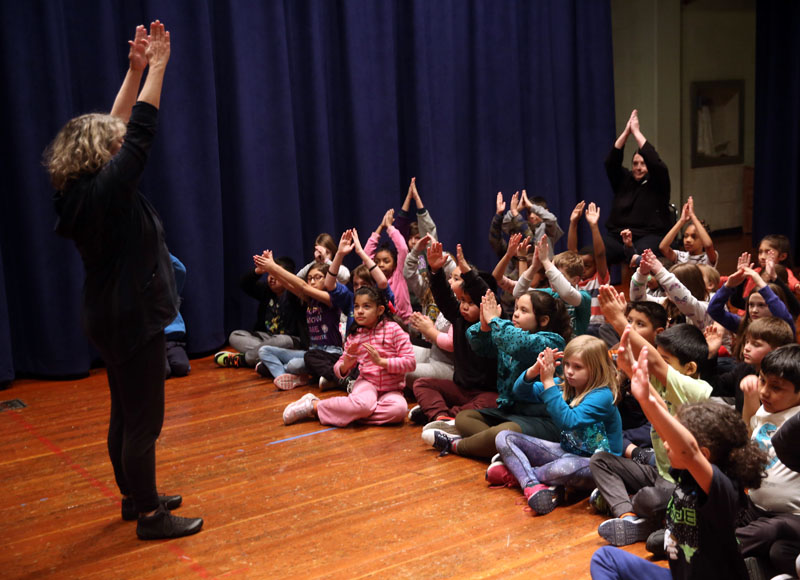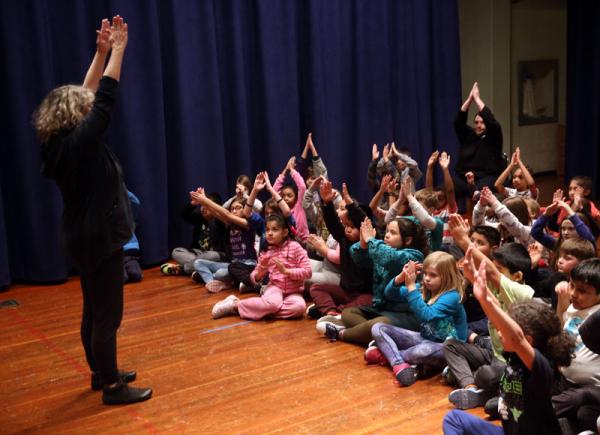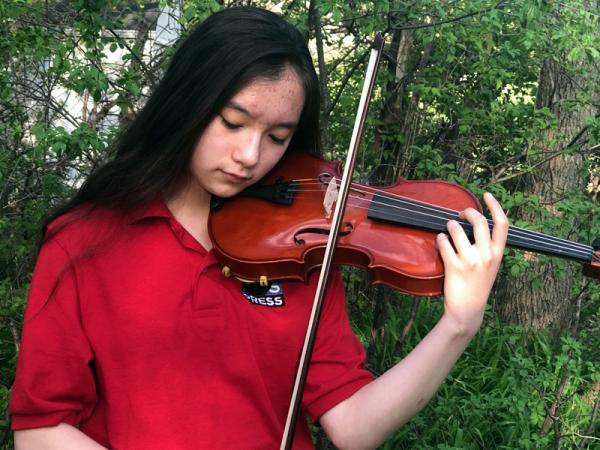KID REPORTERS’ NOTEBOOK
Why Arts Education Matters


Isabelle Kralj, the founder of Theatre Gigante, introduces Milwaukee third graders to acting.
Learning how to dance, play a musical instrument, or create a comic strip isn’t just fun. According to the National Endowment for the Arts, kids who study art are four times more likely to be recognized for academic achievement. Why? Research shows that arts education can strengthen critical thinking, memory, and even math skills. Access to music, dance, and arts programs is especially important for children in low-income communities.
With budget shortfalls a continual concern, organizations around the country help schools introduce students to the arts. In my area, the Milwaukee Symphony Orchestra’s Arts in Community Education (ACE) program supplements arts education in local public and private schools. Founded in 1990, the program includes school visits from musicians and actors and field trips to art museums and theaters.
To learn more about ACE, I spoke with Rebecca Whitney, who is the program’s director of education. She explained that ACE’s goal is to deepen students’ understanding of the world through music, dance, and even drama.
Expanding horizons and providing access to everyone are top priorities. “The overarching value of arts education is to teach and inspire creativity, collaboration, community, and connections,” Whitney said. “Most schools pay only $17 per student for all of the programming.”

Emilia, who participated in ACE in elementary school, now studies violin.
“EXCITEMENT AND WONDER”
Since its founding, ACE has inspired tens of thousands of young people, including me. I was a member of the ACE program in elementary school. I remember taking a trip to the Milwaukee Symphony Orchestra, which reignited my love for the performing arts. I now play violin for a local symphony orchestra.
My friend, Isabella Krynicka, is also a member of the orchestra and a past participant in ACE. “It was so inspirational to watch professional musicians perform,” she recalled.
Now that pandemic restrictions are easing, ACE will resume its in-person programs at schools. “The most rewarding part of working with ACE,” Whitney said, “is seeing the excitement and wonder students and teachers have.”
